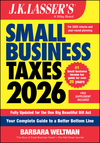What’s Your Excuse: Three Common Penalties that Can Be Avoided
The bad news: it’s all too easy to trigger tax penalties. The good news: A number of penalties can be waived if you have a good excuse. Here are three common penalties and the excuses that can result in relief.
The penalty: 50% penalty for the failure to take required minimum distributions (RMDs) from IRAs and qualified retirement plans.
The excuse: The IRS may waive the penalty if you can show the failure to take RMDs was the result of “reasonable cause.” This can be an error by the financial institution with which the accounts are held, illness of the person required to take RMDs or a close family member, a death in the family, military service, or incarceration. To rely on this excuse, the RMD failure must be corrected promptly and a request for a waiver must accompany Form 5329 (attach your personal statement to the form). You don’t have to pay the penalty and ask for it back; you simply say you owe no penalty because of reasonable cause. This relief is liberally granted.
The penalty: 20% accuracy-related penalty for a variety of actions, including a substantial underpayment (the greater of 10% of the correct tax or $5,000), overvaluations, and ignoring the rules and regulations.
The excuse: The most common excuse when seeking relief is that you relied on the advice of a tax professional. This excuse flies only if you acted in good faith and there was full disclosure on your part. If you did not use a tax professional, you can raise any other reasonable cause excuses, including the ones discussed earlier as well as ignorance of or confusion about the law. Having an excuse is no guarantee that you escape penalty, but the IRS or a judge (if you bring the matter to court) may be sympathetic to your plight.
The penalty: Late filing penalty of up to 5% per month (up to 25%) of the unpaid tax due on the tardy return.
The excuse: Again, any showing of reasonable cause may be helpful. However, because a filing deadline isn’t difficult to understand and usually is well known, it’s not easy to prove reasonable cause. In this situation, circumstances out of a person’s control (e.g., illness, death in the family, natural disaster) are more helpful than reliance on a tax professional.
Conclusion
Obviously, it’s better not to incur penalties by observing filing deadlines and other rules. However, if you slip up, you may be able to avoid paying penalties and save money by proffering a good excuse. Find a list of the potential IRS penalties and what you can do about them in the IRS Penalty Handbook (this handbook is meant for IRS agents; it is highly technical and difficult to navigate).
Exemption
A fixed deduction allowed to every taxpayer, except those who may be claimed as a dependent by another person. Extra exemption deductions are allowed for a spouse on a joint return and for each qualifying dependent. A deduction of $3,400 is allowed for each exemption claimed on 2007 returns, but the deduction is phased out for certain high income individuals.



